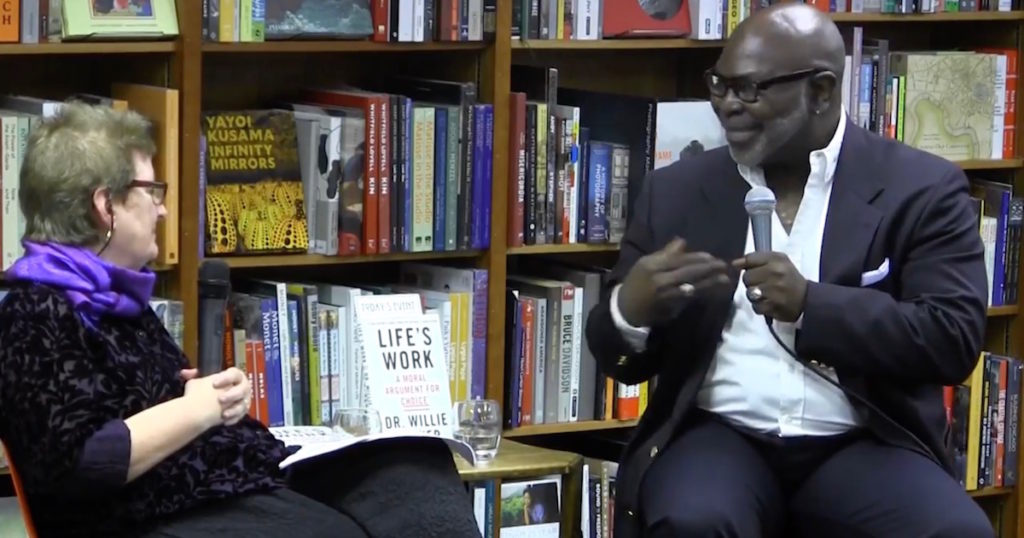 Culture & Ethics
Culture & Ethics
 Life Sciences
Life Sciences
 Medicine
Medicine
A (New) Argument for Abortion

There’s an argument making the rounds in the pro-abortion movement that’s important, both for the inanity of its logic and its implications for the state of the debate about human exceptionalism and the protection of innocent life.
Dr. Willie Parker is an abortionist in Alabama, and in his new book, Life’s Work: A Moral Argument for Choice, he defends abortion from his Christian perspective (he’s an Evangelical). Parker’s argument is this: there is no question that a baby in the womb is alive (he calls it “the pregnancy”); but it is not life that warrants protection, but persons. And the mother is a person, whereas, according to Parker, the baby is not. So the mother’s suffering with an unwanted pregnancy takes precedence over the life of “the pregnancy” (the baby), because the baby is not a person, has no rights, and cannot suffer.
From an interview with Parker, with my commentary:
Here’s the thing: Life is a process, not an event. If I thought I was killing a person, I wouldn’t do abortions. A fetus is not a person; it’s a human entity. In the moral scheme of things, I don’t hold fetal life and the life of a woman equally. I value them both, but in the precedence of things, when a woman comes to me, I find myself unable to demote her aspirations because of the aspirations that someone else has for the fetus that she’s carrying.
Life is not a “process,” in Parker’s sense of the word. Parker means that, in his view, human life has no sharp beginning, but gradually develops from gametes to being a human being. He is mistaken about the science.
Life is an activity, a state, of an individual organism. It entails processes, of course (growth, metabolism, sensation, perception, etc.), but there is not a seamless continuum between inanimate matter, parts of human beings, and a human being.
A human life begins at fertilization of the egg by the sperm. I am alive. A fetus in the womb is alive, as is an embryo, as is a zygote. A cell in my body is alive in the sense that it is part of me, but a somatic cell is not a human life itself. A sperm cell is not a human life. Nor is an egg cell.
A zygote is a human life, because it is, from a biological perspective, a human being. Human life begins at fertilization: the new human being at this stage has its genetic complement and will, if nourished and unimpeded, mature to an embryo, a fetus, a baby, a child, and an adult.
Human life begins at fertilization, and ends at death. Individual parts of human beings — cells and tissues and organs — are not lives in themselves, but are parts of a human being.
There is no scientific debate about the fact that human life begins at fertilization and ends at death. This is a simple biological fact, known since the 19th century when the science of human reproduction was established.
Whether a human being at the stage of an embryo or a fetus is a “person” is another matter. A person is (in this context) a human being who is worthy of moral respect and legal protection. It is on the question of personhood of the child in the womb that the abortion debate hinges, not on the question of whether the child, from zygote to embryo to fetus, is a human being.
A fetus isn’t a “human entity.” He or she is a human being. Human life begins at fertilization. That is a fact of biology, and has been settled by science for two centuries, and it’s regrettable that Dr. Parker, an abortionist, misrepresents the science to defend his trade.
The real question in the abortion debate is this: Are all human beings persons, or does personhood depend on certain characteristics of human beings? One hopes that African-Americans especially will reject Dr. Parker’s argument that a certain class of human beings, because of their condition of vulnerability, aren’t persons and aren’t entitled to respect and legal protection.
